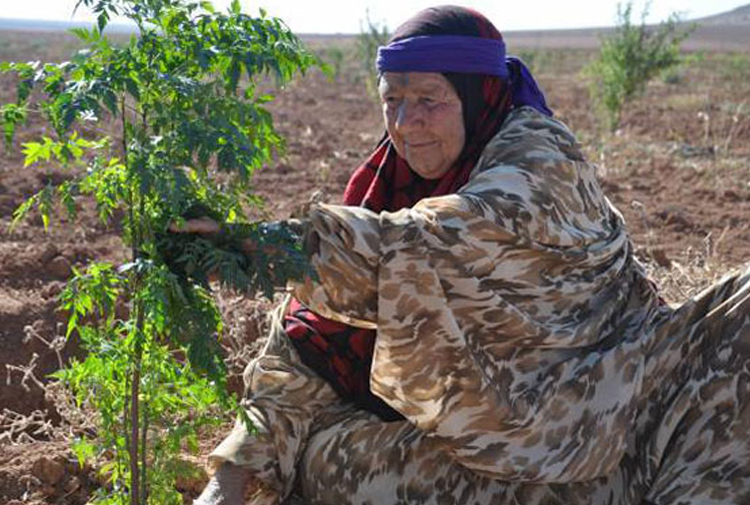Ecology is a new science that examines the destruction engendered by state civilisation based on dominating the nature, and the relation between the society and the nature. In the natural society, established around women, the bond between nature and the society was based on respecting the nature. This bond was destroyed with the state civilisation, and as a result, people became alienated from themselves, from women and the society. The same forces exploited women and nature at the same time.
For that reason, ecology is obliged to overcome the artificial conflict between society and nature by merging with other fields of science. Ecology is also obliged to tell the story about the conversion of the cultures that believed in and respected nature, to the system that is the thorn in the flesh of nature. To do this, there is a need for a strong ideological consciousness and a new scientific point of view.
With this scientific perspective – that of Jineolojî – the economic, social and philosophical ways of integration with the natural environment should be rediscovered. Rather than being an environmentalist movement alone, being an ecological movement based on ethic transformation through the perspective of Jineolojî, it is essential to overcome the alienation between woman-nature, human-nature, and society-nature. Ecology, in this sense, is one of the main fields of Jineolojî as well as one of the ways to reach an ethical-political society.
With its scientific and methodological revolution, Jineolojî is obliged to realize a liberated society as the third nature, which means recreating harmony between the environment that is defined as the first, and humans who are defined as the second nature.
Jineolojî and Looking at history with Jineolojî and organizing history – or even better ‘herstory’ – with the values defined by women establishes a very strong connection between the past and the present life, society and nature. Moreover, Jineolojî’s perspective tells us how the recent history and its values, cultures of resistance, languages, ethics, cults, tales and many more are reflected today. Therefore, Jineolojî considers history as an entity within the present moment, a time, a space, and a memory, rather than considering history as a strictly determined phenomenon.
Jineolojî refers to women, who were excluded from the formal history, cultures, social institutions and units, based on the Öcalan’s interpretation: “The history of civilization is, at the same time, the defeat and the disappearance of women”, and considers women as the real subjects of history.
Jineolojî has an understanding of history, which is integrated and continuing within life not within power. It is based on the accumulation of cultural and social values and binaries that complement each other.
Jineolojî continues to search and reveal women’s resistances as well as all the values of democratic civilisation resisting against hegemony that has organized and maintained itself through accumulation. For that reason, one of the essential responsibilities of Jineolojî is to reach the truth of women, who have lost a great meaning throughout the formal history of civilization. Our methods aim to uncover the reality of women from the darkness as they allow women to reconstruct herstory rather than annexing themselves to the existing history.

